Can We Drink Essential Oils
Essential oils have gained popularity for their various health benefits, but can they be consumed orally?
We explore the safety and benefits of drinking essential oils, including boosting the immune system, aiding digestion, and reducing inflammation.
It’s important to be aware of the risks, such as digestive issues and interactions with medications. To safely consume essential oils, dilution with a carrier oil and consultation with a healthcare professional are key.
Key Takeaways:
What Are Essential Oils?
Essential oils are natural, concentrated extracts derived from various plants. These oils are known for their aromatic properties and are often used in aromatherapy to promote health and well-being.
These oils are typically extracted through methods such as distillation, cold pressing, or solvent extraction, ensuring the retention of the plant’s beneficial compounds.
Peppermint oil, for example, is commonly sourced from peppermint leaves, providing a refreshing and invigorating scent. On the other hand, lavender oil, extracted from lavender flowers, is revered for its calming and soothing properties. Eucalyptus oil, derived from the eucalyptus tree, is renowned for its respiratory benefits, often used to alleviate congestion and promote clearer breathing.
Can Essential Oils Be Consumed Orally?
Consuming essential oils orally is a topic of discussion due to the potential risks involved and varying regulations regarding their internal use.
One of the main controversies surrounding the practice of ingesting essential oils lies in their potency when taken internally. Essential oils are highly concentrated extracts from plants, which can be harmful if not diluted properly before oral consumption. There is a lack of standardized medical guidelines for their internal use, leading to differing opinions among experts. Regulatory entities such as the FDA urge caution when using essential oils orally, emphasizing the importance of consulting a healthcare professional before doing so.
Is It Safe To Drink Essential Oils?
The safety of drinking essential oils is a crucial concern as these concentrated plant extracts can have toxic effects when ingested inappropriately.
When essential oils are consumed orally, it is important to remember that even though they are natural, they are extremely potent and can lead to toxicity if not used properly. Certain essential oils can cause adverse reactions such as nausea, vomiting, or even liver damage if ingested in high quantities.
This is why it is crucial to always dilute essential oils in a carrier oil before ingestion to minimize the risk of harmful effects on the body. Following precise guidelines on the safe consumption of essential oils set by reputable sources and professionals is essential to prevent any possible risks.
What Are The Benefits Of Drinking Essential Oils?
Drinking essential oils is believed to offer various benefits, including boosting the immune system, aiding digestion, reducing inflammation, and improving respiratory health.
Some popular essential oils used internally are:
- Peppermint, known for its digestive support and refreshing aroma
- Lavender, prized for its calming and stress-relieving properties
- Lemon, which can help detoxify the body and uplift the mood
When ingested properly and in appropriate doses, these essential oils can exert their therapeutic effects on various body systems, such as the digestive, respiratory, and nervous systems. Peppermint oil, for instance, can soothe an upset stomach, while lavender oil might promote relaxation and sleep. Lemon oil is often used to support liver function and cleanse the body.
Boosts Immune System
One of the touted benefits of drinking essential oils is their potential to boost the immune system by supporting the body’s natural defense mechanisms.
Specific essential oils known for their immune-boosting properties include Eucalyptus, Tea Tree, and Frankincense. These oils contain powerful compounds that can help fortify the immune system when used appropriately.
Internal use of essential oils should always be approached with caution and under the guidance of a healthcare professional. It is crucial to ensure that oils are properly diluted before ingestion to prevent any adverse reactions. Incorporating these oils into your daily routine through diffusing, topical application, or even adding a drop to a beverage can provide immune system support.
Aids Digestion
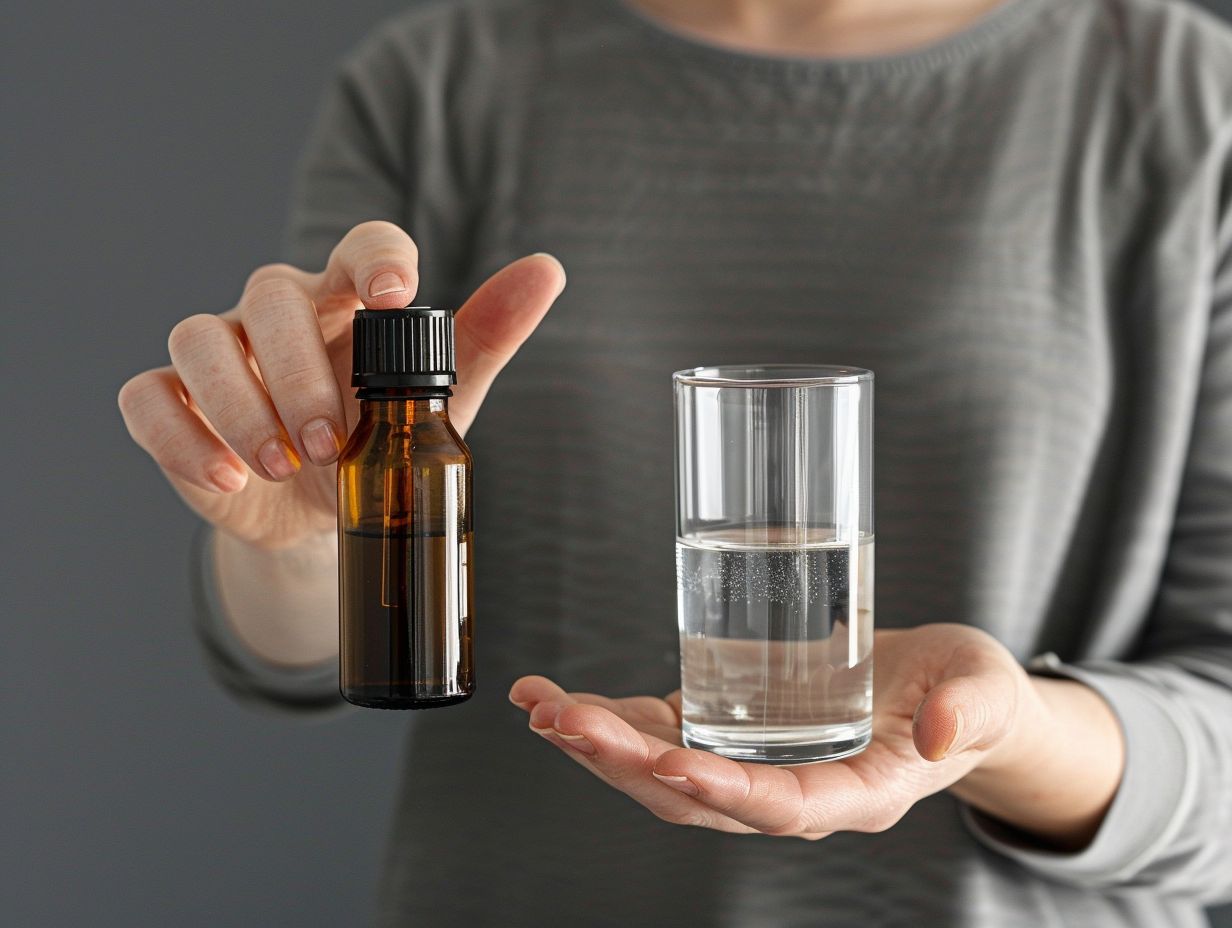
One popular essential oil known for its digestive support is peppermint oil. When ingested in diluted form, peppermint oil can help relieve bloating and indigestion by relaxing the muscles of the gastrointestinal tract.
Another effective essential oil for digestive health is ginger oil. Ginger oil has anti-inflammatory properties that can reduce digestive issues such as gas and nausea. It is recommended to add a drop of essential oils water drink ginger oil to warm water and drink it slowly to ease digestive discomfort.
It is important to note that essential oils are highly concentrated and should be used with caution. Always consult with a healthcare professional before ingesting essential oils and ensure they are diluted properly.
Reduces Inflammation
Some essential oils have anti-inflammatory properties that may help in reducing inflammation in the body when ingested in diluted forms as per recommended guidelines.
It is important to note that not all essential oils are safe for internal consumption, and proper dilution is crucial to avoid adverse reactions. When using essential oils internally, it is essential to consult with a healthcare professional or a certified aromatherapist to ensure safety.
Common essential oils known for their anti-inflammatory effects include Lavender, Peppermint, and Frankincense. These oils can be incorporated into your routine either through aromatherapy or diluted ingestion to help manage inflammation naturally.
Improves Respiratory Health
Inhalation or ingestion of specific essential oils can have a positive impact on respiratory health by supporting clear breathing and soothing respiratory symptoms.
Essential oils such as Eucalyptus, Peppermint, and Tea Tree are known for their decongestant and expectorant properties, helping to clear the airways and alleviate congestion. When inhaled through steam inhalation or a diffuser, these oils can reduce inflammation in the respiratory tract, making breathing more comfortable.
For those considering ingestion of essential oils for respiratory benefits, it is crucial to dilute them in a carrier oil and seek advice from a qualified aromatherapist or healthcare provider. Safety precautions must be observed to prevent adverse reactions and ensure optimal effectiveness.
What Are The Risks Of Drinking Essential Oils?
Despite their potential benefits, consuming essential oils orally carries risks, including digestive issues, interactions with medications, and allergic reactions.
When essential oils are ingested undiluted, they can cause irritation to the mucous membranes in the digestive tract, leading to stomach upset, nausea, and even ulcers. Certain essential oils can interact with medications, either enhancing or inhibiting their effects, which can be dangerous. Precautions should always be taken, such as consulting with a healthcare professional before oral consumption. It is crucial to dilute essential oils properly to minimize the toxic effects they may have when taken internally.
Following strict safety guidelines established by reputable aromatherapy experts is vital. These guidelines typically advise against ingesting certain essential oils due to their potentially harmful reactions in the body. By respecting these recommendations and being aware of the risks involved, individuals can safely enjoy the benefits of essential oils without compromising their well-being.
Can Cause Digestive Issues
One of the primary risks of drinking essential oils is the potential to cause digestive issues such as nausea, stomach upset, or gastrointestinal discomfort.
When essential oils are ingested without proper dilution or safe ingestion practices, they can be harsh on the delicate lining of the digestive system. This can lead to immediate reactions such as irritation, burning sensations, or even more severe symptoms in some cases.
It is crucial to exercise caution and follow precautions when using essential oils internally. Always dilute them properly in a carrier oil or another safe medium to avoid direct contact with the digestive tract. Consulting a healthcare professional before any internal use is highly recommended to prevent any potential harm.
Can Interact With Medications
Consuming essential oils orally can lead to interactions with medications, affecting their absorption or efficacy, and potentially causing adverse effects.
When essential oils are ingested, they can enter the bloodstream and interact with medications a person may be taking for various health conditions. This interaction can alter the way medications are metabolized in the body, leading to unexpected outcomes. Ingesting essential oils without proper medical guidance can pose serious risks, especially for individuals with pre-existing health issues or those on multiple medications.
It is crucial to consult healthcare professionals before considering internal use of essential oils. They can provide guidance based on medical guidelines and help assess potential risks associated with the ingestion of essential oils alongside medications.
Can Cause Allergic Reactions
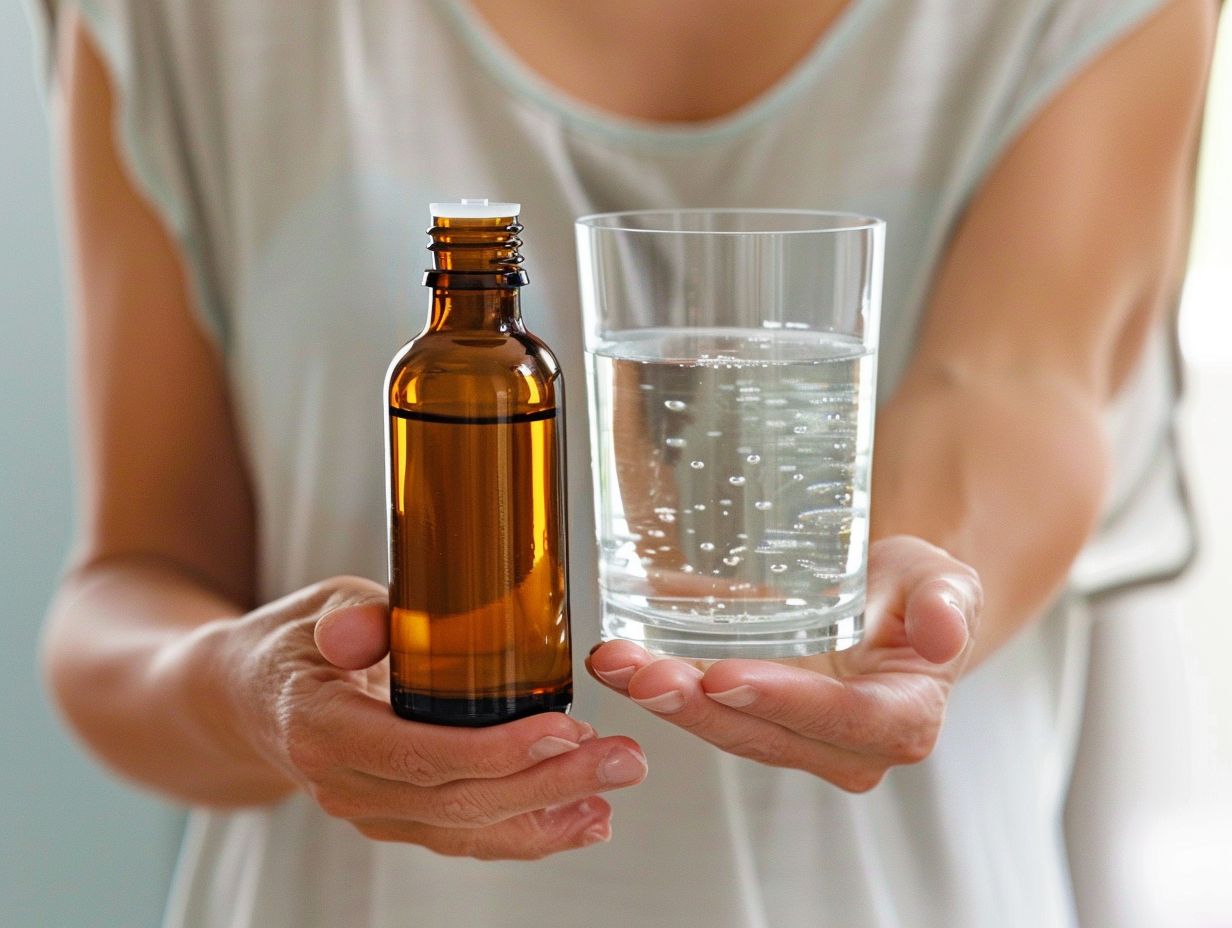
Drinking essential oils can trigger allergic reactions in some individuals, manifesting as skin irritation, rashes, or respiratory issues upon ingestion.
It’s important to note that not everyone will experience allergic reactions to essential oils, as each person’s body reacts differently. For those who are sensitive, even a small amount of oil can lead to adverse effects. Can you drink lemon essential oils safely?
Symptoms can vary and may include itching, redness, hives, swelling, or difficulty breathing. To safeguard against potential reactions, it is advisable to conduct a skin test before internal consumption. Applying a diluted oil on a small patch of skin and observing any adverse reactions can help determine if a particular oil is suitable. This simple precaution can prevent more serious skin and respiratory reactions from occurring.
How To Safely Consume Essential Oils?
Safely consuming essential oils involves diluting them with a carrier oil, seeking guidance from healthcare professionals, following proper dosage guidelines, and using high-quality, pure oils.
When diluting essential oils, it is crucial to achieve the right concentration to prevent skin irritations or adverse reactions. Consulting with experts such as aromatherapists or naturopaths can provide valuable insights on the safe use of essential oils, especially for topical applications.
Adhering strictly to dosage recommendations is essential to avoid potential toxicity issues from overuse. It is recommended to start with a small amount and gradually increase as needed while monitoring for any adverse effects. Can you put essential oils in water and drink it?
Choosing premium quality oils ensures that you are getting the full benefits without any harmful additives or contaminants. Investing in reputable brands known for their purity and transparency can enhance your experience with essential oils.
Dilute With Carrier Oil
Before internal use, essential oils should be diluted with a carrier oil to reduce their concentration and minimize the risk of adverse effects.
Coconut oil, olive oil, and fractionated coconut oil are popular carrier oils for diluting essential oils for ingestion, as they are relatively neutral in aroma and flavor. Can we eat essential oils?
The recommended dilution ratio for safe internal application is typically 1-2 drops of oregano oil per teaspoon of carrier oil.
Proper dilution is crucial to prevent irritation or damage to the sensitive mucous membranes in the digestive tract when ingesting essential oils.
Consult A Healthcare Professional
It is essential to consult a healthcare professional before consuming essential oils internally, especially if you have any underlying medical conditions or are taking medications.
Seeking expert advice before ingesting essential oils is crucial as some oils can have adverse effects when used internally.
Can essential oils be consumed safely with expert guidance on dosage, interactions, and contraindications.
Ingestion of essential oils is subject to regulations and it is important to follow medical guidelines to avoid any complications.
Follow Proper Dosage Guidelines
Adhering to recommended dosage guidelines is crucial when consuming essential oils internally to prevent adverse effects and ensure safe usage.
Internal consumption of essential oils requires caution and precision. When essential oils are ingested, they undergo a process of absorption where they enter the body’s bloodstream. Therefore, diluting essential oils before ingestion is essential to prevent irritation and potential harm to internal organs. Improper dosing can lead to toxicity symptoms, digestive issues, and even liver damage. It’s important to note that essential oils are highly concentrated extracts, and using them undiluted can have severe consequences on one’s health.
Use High-Quality, Pure Essential Oils
Opting for high-quality, pure essential oils is essential to ensure the safety and efficacy of internal consumption, as adulterated products may pose additional risks.
When ingesting essential oils, it’s crucial to prioritize products that are sourced from reputable suppliers and undergo rigorous testing processes to maintain their purity. The quality of the oil directly impacts its authenticity and overall benefits when used internally. Lower-quality or adulterated oils can contain harmful chemicals, synthetic additives, or impurities that can lead to adverse reactions when consumed.
To avoid any harmful effects, consumers should carefully read product labels, opt for organic options, and seek oils that are specifically labeled as safe for ingestion. Investing in genuine, premium-grade essential oils is an investment in your well-being and health.
Frequently Asked Questions
Can we drink essential oils?
Yes, but only certain types of essential oils and in very small amounts. It is important to consult a qualified healthcare professional before ingesting any essential oils, as they can be toxic in large quantities.
What types of essential oils can we drink?
Only high quality, 100% pure essential oils that are labeled for internal use should be consumed. Oils that are safe for consumption include peppermint, lemon, and ginger, among others.
How much essential oil should we drink?
The recommended amount of essential oil to drink is usually only 1-2 drops, diluted in water or food. It is important to follow proper dilution guidelines and not exceed the recommended dosage.
Why do some people drink essential oils?
Some people believe that drinking essential oils can provide health benefits, such as boosting the immune system, improving digestion, and reducing inflammation. However, there is limited scientific evidence to support these claims.
Are there any risks to drinking essential oils?
Yes, there are potential risks to consuming essential oils, including allergic reactions, interactions with medications, and toxicity if too much is ingested. It is crucial to research and use caution when considering drinking essential oils.
Can we drink essential oils while pregnant or breastfeeding?
It is not recommended to ingest essential oils during pregnancy or while breastfeeding, as the effects on the baby are not well understood. It is best to consult a healthcare professional before consuming essential oils in any form during these times.

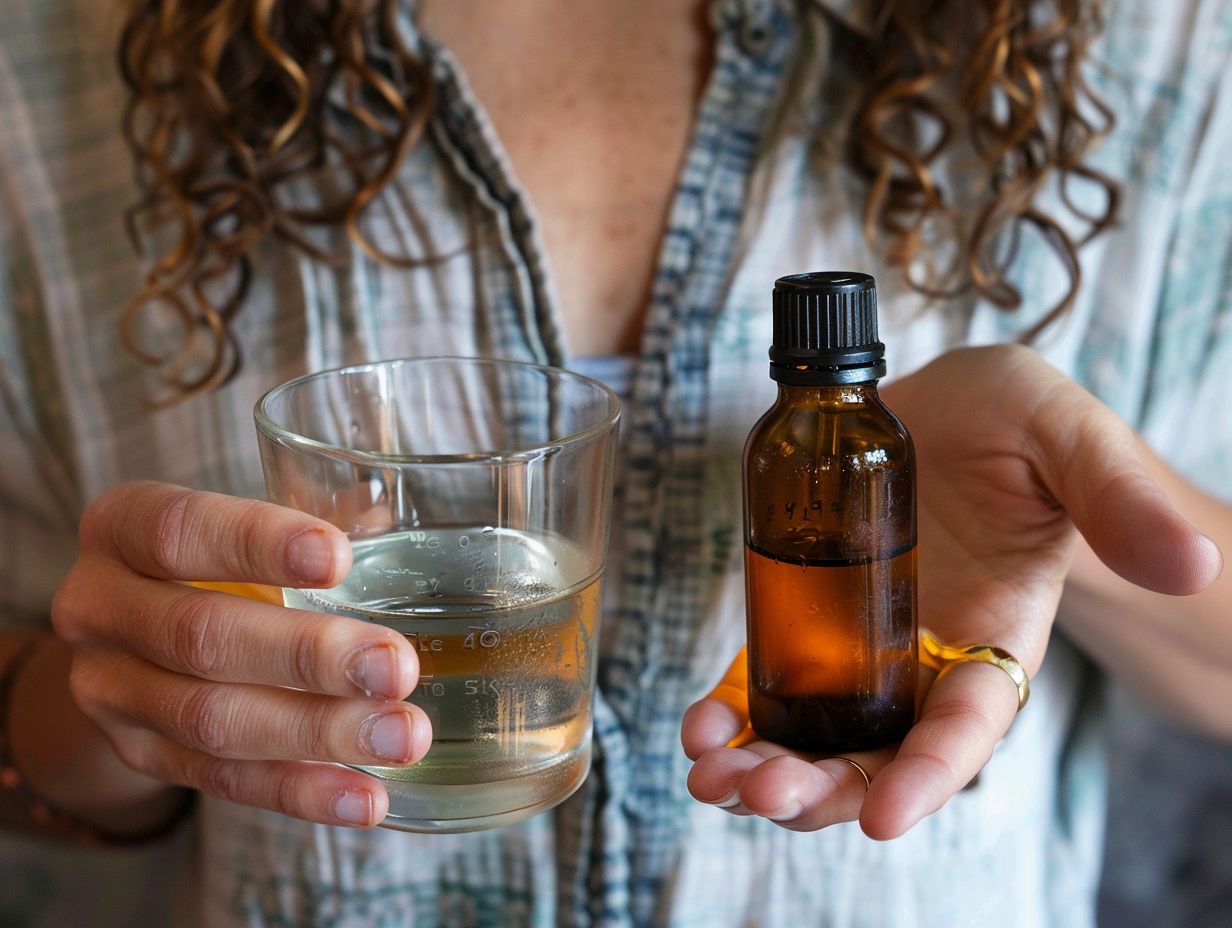
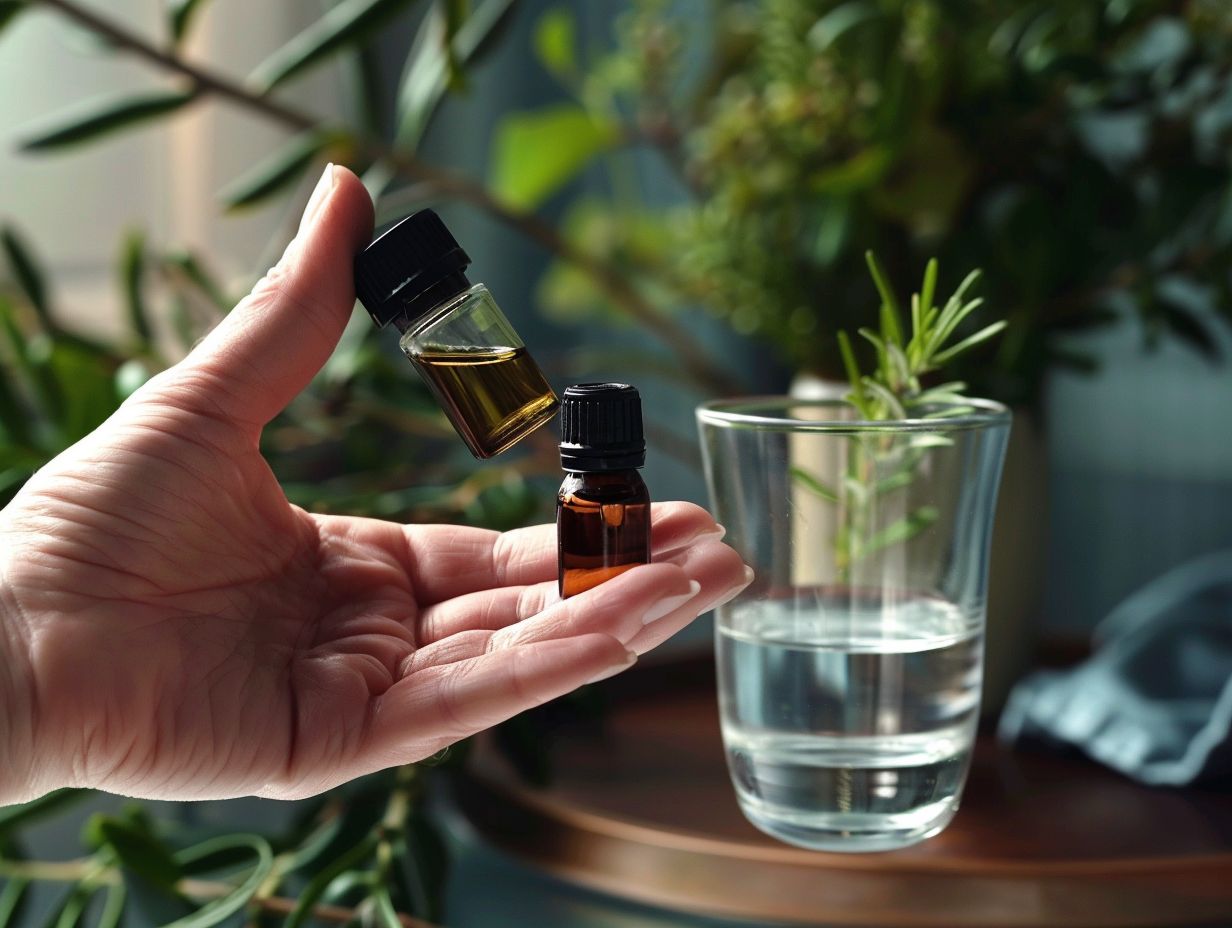
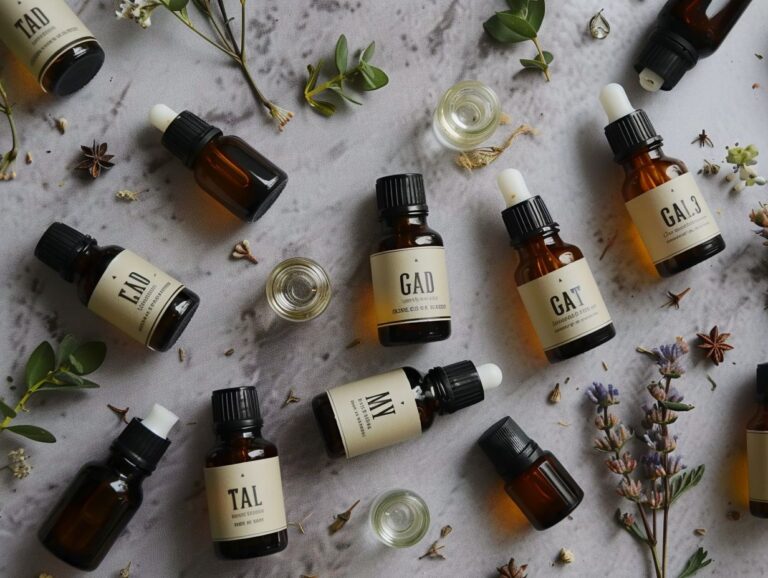


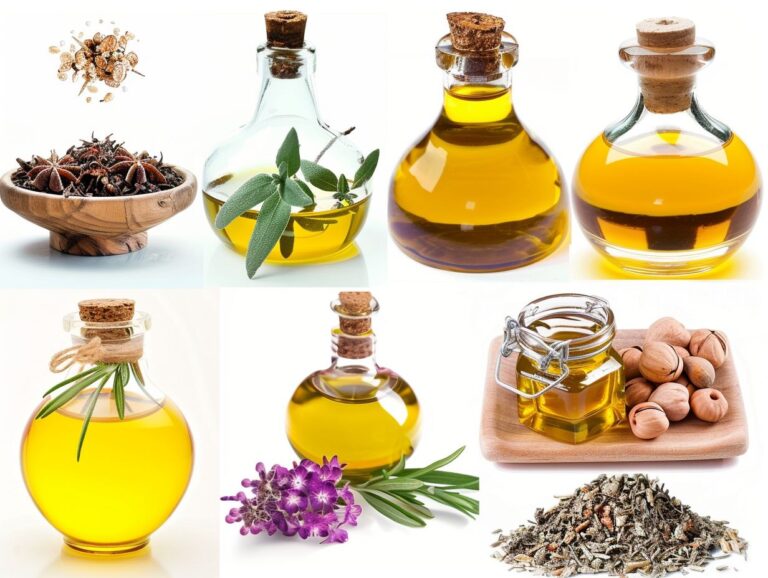

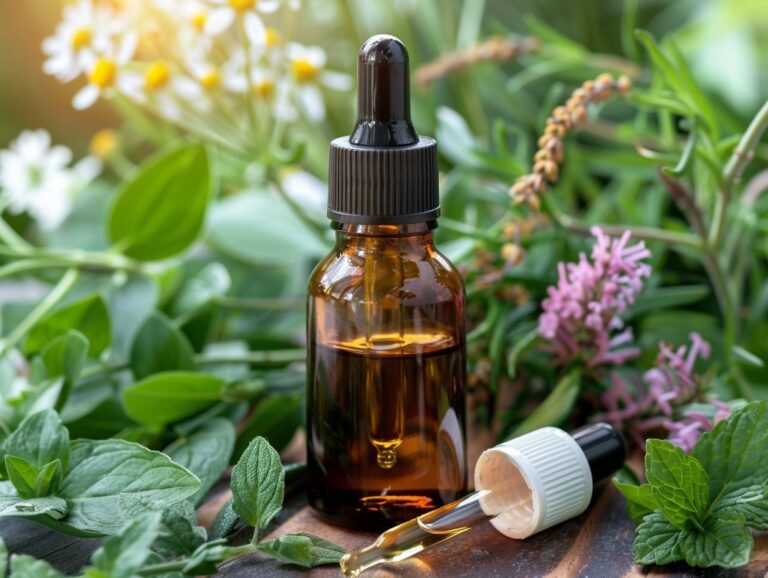
5 Comments